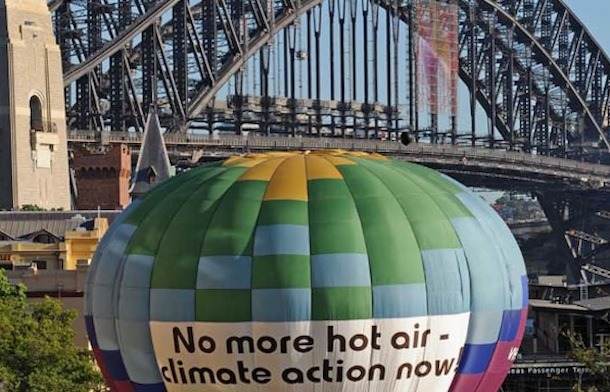Per Capita Research Paper, published by Policy Network
by David Hetherington and Tim Soutphommasane, Per Capita
Executive Summary
Climate change politics in Australia has been defined by incendiary rhetoric and increasing public disillusionment. Debate has been slipping into the partisan arena of the “culture warsâ€. Social democrats can learn from the Australian experience, which underlines the need to move away from cosmopolitan ethics and towards muscular nation-building. Climate change action requires broad coalitions of support and an acknowledgement that reform will be costly.
In 2007, staking his claim to become prime minister of Australia, Kevin Rudd famously described climate change as “the greatest moral, economic and social challenge of our time. Climate change was, for Rudd, one of his defining concerns as opposition leader. If the Labor Party were elected, it would ratify the Kyoto Protocol and introduce an emissions trading scheme (ETS). A Rudd Labor Government wouldn’t be waiting for the rest of the world to act on climate change; it would ensure Australia was leading it.
Some three years later, Rudd is indeed Australian prime minister. His government’s first formal act was to ratify the Kyoto Protocol. Yet Rudd’s attempts to introduce an ETS have thus far failed. Once a sure vote-winner for Rudd and Labor, climate change has now become something of an electoral yoke. The public mood has shifted. Bipartisan support for an ETS has disappeared, with the replacement of former Howard environment minister Malcolm Turnbull as the leader of the Liberal-National opposition. The new leader, Tony Abbott, a well-known climate sceptic, has gained considerable political traction by dismissing an ETS as just “a great big new tax”. The Rudd Government, once so sure-footed on climate change matters, is now reluctant to fight the next general election on the issue.
Australia may, on the face of things, appear an atypical case study for social democrats seeking to recapture the political initiative on climate change. After all, the fortunes of the Australian economy are tied to fossil fuels: primary commodities including coal and natural gas account for the bulk of merchandise export income. During the last decade Chinese demand for raw materials has fuelled a resources boom that will continue for decades and whose windfall is expected to be the largest of its kind ever.
Moreover, the climate change debate in Australia has had something of an exceptionalist character. For it has been arguably subsumed into the so-called “culture wars” that have raged in Australia in recent years. Although a majority of Australians believe in anthropogenic climate change, some of the language of climate change scepticism has been expressed in the familiar cadences of rightwing populism. With echoes of previous debates about the Australian republic, multiculturalism and Aboriginal reconciliation, the scientists who compose the body of the IPCC are portrayed as pernicious, rent-seeking “elites” attempting to capture the state. The so-called “climategate” incident involving leaked emails from the University of East Anglia’s Climatic Research Unit, and the controversy surrounding the IPCC’s findings about the melting of ice glaciers, have only lent credence to accusations of elite scientific conspiracy.
Yet one shouldn’t dismiss the Australian experience on account of its peculiarities. In various ways, it reveals a good deal about the underlying challenges for progressives elsewhere. On the one hand, Australia’s vulnerability is a reminder of the truly grave threat global warming poses to biodiversity and ecosystems. The Great Barrier Reef, for example, has experienced unprecedented bleaching over the last twenty years. Rising temperatures could mean that the kind of firestorms that engulfed Victoria that Black Saturday of 7 February 2009 will become more common. On the other hand, the political journey of the Rudd Government highlights the pitfalls of climate change reform. For all of Ruddâ’s belief in the urgency of climate change action, he has failed thus far to score a decisive reform victory. This is because his Government hasn’t yet convinced voters that structural reform demands hard choices, nor has it offered a compelling political narrative about climate change action.
In this paper, we outline three lessons progressives can draw from Australiaâ’s climate change debate: (1) that the task of structural reform necessarily incurs high costs; (2) that the case for climate change action is more persuasive when supported by a nation-building story; and (3) that the politics of climate change require progressives to build broad coalitions of support.

